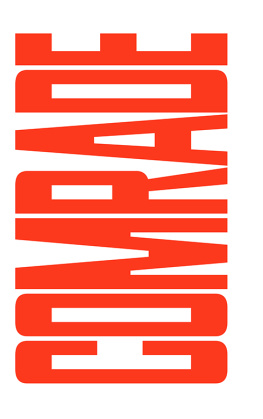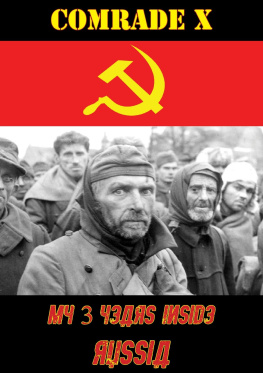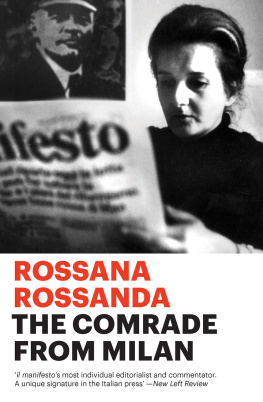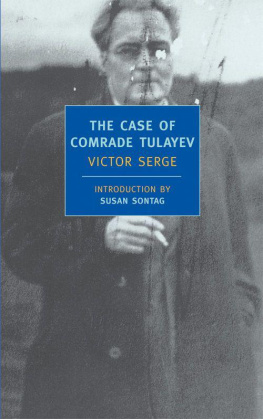Contents

COMRADE
COMRADE
An Essay on Political Belonging
Jodi Dean

First published by Verso 2019
Jodi Dean 2019
All rights reserved
The moral rights of the author have been asserted
1 3 5 7 9 10 8 6 4 2
Verso
UK: 6 Meard Street, London W1F 0EG
US: 20 Jay Street, Suite 1010, Brooklyn, NY 11201
versobooks.com
Verso is the imprint of New Left Books
ISBN-13: 978-1-78873-501-8
ISBN-13: 978-1-78873-503-2 (UK EBK)
ISBN-13: 978-1-78873-504-9 (US EBK)
British Library Cataloguing in Publication Data
A catalogue record for this book is available from the British Library
Library of Congress Cataloging-in-Publication Data
A catalog record for this book is available from the Library of Congress
Typeset in Garamond by Biblichor Ltd, Edinburgh
Printed and bound by CPI Group (UK) Ltd, Croydon CR0 4YY
Dedicated to M. F.
Contents
The weight of acknowledging the many people who contributed to this book is nearly too much to bear. Every word draws from lessons learned from working with others, not all of whom I know by name. I am especially grateful for the challenging support of the directors and participants in the annual meeting of the Radical Critical Theory Circle in Nisyros, Greece; for the generosity of colleagues who have provided me with opportunities to present portions of the book in public lectures and seminars; and to the militant organizers of the Geneva Womens Assembly for what they teach me every day. I want to extend special thanks to Paul Apostolidis, Maria Aristodemou, Bernard Aspe, Albena Azmanova, Darin Barney, Paul Buhle, Maria Chehonadskih, Carl Davidson, Alla Ivanchikova, Andreas Kalyvas, Kian Kenyon-Dean, Regina Kreide, Rob Maclean, Artemy Magun, James Martel, Korinna Patelis, Alexei Penzin, Kenneth Reinhard, David Riff, Corey Robin, Marcela Romero-Rivera, Laura Salamendra, Christian Sorace, and Oxana Timofeeva. I am grateful to Hannah Dickinson, Kai Heron, and Sadie Kenyon-Dean, as well as my editor, Rosie Warren, for their comments on the manuscript. As always, I am appreciative beyond measure for the patience and love of my partner, Paul Passavant.
S EVERAL JOKES IN PRESIDENT Barack Obamas address at the 2016 White House Correspondents Dinner targeted Senator Bernie Sanders. Sanders was running a surprisingly strong campaign against the Democratic Partys presumptive presidential nominee, former secretary of state Hillary Clinton. After a few shoutouts to celebrities and politicians, Obama turned to the subject of Sanders, saying:
A lot of folks have been surprised by the Bernie phenomenon, especially his appeal to young people. But not me, I get it. Just recently, a young person came up to me and said she was sick of politicians standing in the way of her dreams. As if we were actually going to let Malia go to Burning Man this year. (Laughter.) That was not going to happen. (Laughter.) Bernie might have let her go. (Laughter.) Not us. (Laughter.)
I am hurt, though, Bernie, that youre distancing yourself a little from me. (Laughter.) I mean, thats just not something that you do to your comrade. (Laughter and applause.)
The last joke points to the socialist opening Sanderss campaign cut into US politics. At first glance, the joke seems like red-baitingObamas thinly veiled reminder that Sanders was a self-identified socialist and thus unacceptable to the US political class. But perhaps not. Maybe it was a reminder for the audience that Sanders wasnt a member of the Democratic Party, and so he wasnt Obamas party comrade at all. Sanders wanted the Democratic nomination for president but he wasnt actually a Democrat. There is also a third way of reading the joke. Recall how persistently the US right red-baited Obama, accusing him of being a communist or socialist. For eight years, the right excoriated the countrys first black president as the most radical left-wing official ever to inhabit the White House. Mocking Comrade Obama, the right associated Obama with Lenin and Stalin, Che and Mao. Read this way, the joke points not to Sanders as a comrade but to Obama as a comrade. Obama could have been referring to himself as Sanderss comrade, as someone who shares with Sanders a common political horizon, the emancipatory egalitarian horizon denoted by the term comrade. If they were on the same side, with Obama being Sanderss comrade, then Obama should have been able to expect a little solidarity. The joke worked because everybody in the roomfrom celebrities, to Washington insiders, to media mogulsknew full well that Obama wasnt a comrade. He doesnt come close to sharing Sanderss politics, even if the right cant tell the difference between them.
The term comrade indexes a political relation, a set of expectations for action toward a common goal. It highlights the sameness of those on the same sideno matter their differences, comrades stand together. As Obamas joke implies, when you share a politics, you dont generally distance yourself from your comrades. Comradeship binds action, and in this binding, this solidarity, it collectivizes and directs action in light of a shared vision for the future. For communists, this is the egalitarian future of a society emancipated from the determinations of private property and capitalism and reorganized according to the free association, common benefit, and collective decisions of the producers.
But the term comrade predates its use by communists and socialists. In romance languages, comrade first appears in the sixteenth century to designate one who shares a room with another. Juan A. Herrero Brasas cites a Spanish historical-linguistic dictionarys definition of the term: Camarada is someone who is so close to another man that he eats and sleeps in the same house with him. A chamber or room is a repeatable structure that takes its form by producing an inside separate from an outside and providing a supported cover for those underneath it. Sharing a room, sharing a space, generates a closeness, an intensity of feeling and expectation of solidarity that differentiates those on one side from those on the other. Comradeship is a political relation of supported cover.
Interested in comrade as a mode of address, carrier of expectations, and figure of belonging in the communist and socialist traditions, I emphasize the comrade as a generic figure for the political relation between those on the same side of a political struggle. Comrades are those who tie themselves together instrumentally, for a common purpose: If we want to winand we have to winwe must act together. As Angela Davis describes her decision to join the Communist Party:
I wanted an anchor, a base, a mooring. I needed comrades with whom I could share a common ideology. I was tired of ephemeral ad-hoc groups that fell apart when faced with the slightest difficulty; tired of men who measured their sexual height by womens intellectual genuflection. It wasnt that I was fearless, but I knew that to win, we had to fight and the fight that would win was the one collectively waged by the masses of our people and working people in general. I knew that this fight had to be led by a group, a party with more permanence in its membership and structure and substance in its ideology.
Comrades are those you can count on. You share enough of a common ideology, enough of a commitment to common principles and goals, to do more than one-off actions. Together you can fight the long fight.
















